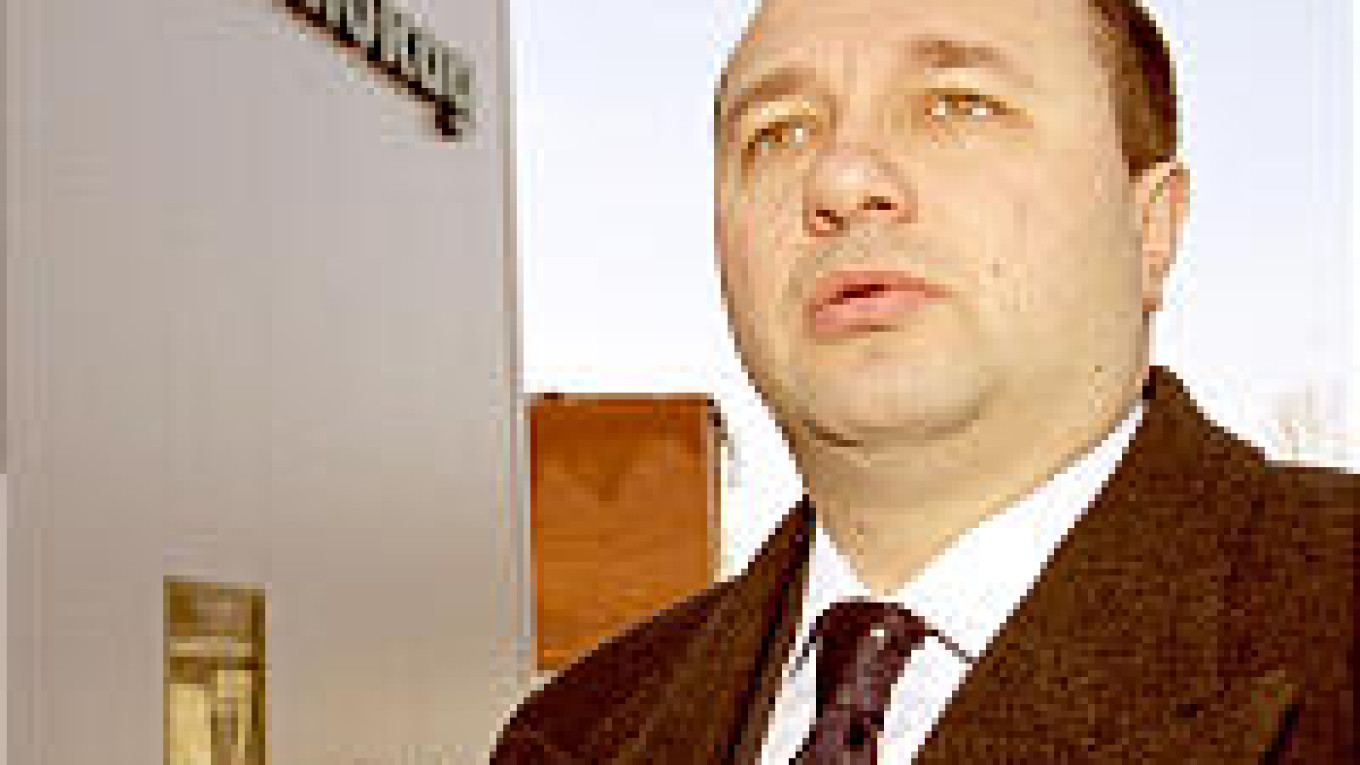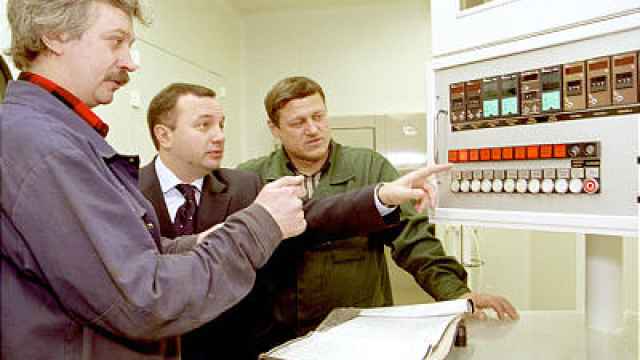While his old banking connections have been useful in setting up a venture capital fund to attract investment for his enterprise, Morozov said the most important investment has come from the other end of the spectrum: the Soviet Union.
In what he says is the first initiative of its kind on the Russian pharmaceuticals market, which mostly produces generic drugs from imported substances, Morozov plans to capitalize on the Soviet scientific legacy by developing and manufacturing its unreleased pharmaceutical creations.
"The Soviet Union invested a huge amount in developing medicines to protect against all kinds of illnesses," Morozov said in an interview. "Many of these inventions were at a threshold stage, so to speak. The question is how to take them, work on them a little and put them on the market."
Morozov said he has enough semi-finished Soviet-era inventions to last 10 years.
"If you have the people, the rest is just technical, a question of organizing," he said.
No private investor has yet made such an attempt on the pharmaceuticals market, according to Morozov, although he believes some have been looking into it.
"This is an interesting project," said Nikolai Demidov, a marketing specialist with industry monitor Farmexpert.
"It answers a question asked long ago -- namely, does anyone in the country need Russian scientific developments?"
Morozov set up his company, Biokad, in 2000 to run the project, and so far $6 million has been invested in building a drugs factory near the village of Petrovo-Dalneye in the Moscow region.
Construction of the factory, now nearing completion, began in spring 2001, and the first batch of medicines is due to be available at the end of the first quarter this year, said Morozov.
"This is all new," said Morozov. "It means we can start working at an international level immediately. We didn't want to have to rely on the Soviet production base."
For research and development, the company established its Center for Engineered Immunology in December last year. The center, which is to develop new genetically engineered medicines for Biokad, is based at the Moscow region Institute for Engineered Immunology, which has been conducting biotechnological research for 20 years.
Morozov plans to invest $15 million in the center.
Despite Morozov's confidence in his pioneering venture, representatives of international pharmaceuticals companies are disparaging of his plans.
"Unfortunately, Russian companies often do not have the money to carry out all the necessary testing," said Oleg Petrov, local product manager for Swiss pharmaceuticals giant F. Hoffmann-La Roche.
|
Mike Solovyanov / MT Morozov and Biokad personnel inspecting the operations of a machine at their almost-complete Moscow region drug factory. |
Launching a new product on the pharmaceuticals market costs billions of dollars and can take up to a decade to develop, said Petrov.
But Morozov is unfazed, saying the investments have been made for him -- by the Soviet Union.
In addition to original Soviet vaccinations, his planned range includes the widespread Interferon 2 alpha, in the form of a suppository and later capsule.
Other products are to include bacteriophages, or viruses that infect bacteria, for the treatment of gut infections, sepsis and complications resulting from pneumonia. Morozov also plans to produce vaccines in capsule form -- against anthrax, among other diseases.
Upon completion, the factory is to be capable of producing 77 million suppositories and 140 million capsules a year.
Morozov struck upon his idea while studying in Japan as part of a Yeltsin-era internship program, whereby specialists were sent to study in G-7 countries.
He came back convinced that the promising areas for development were telecoms, entertainment and pharmaceuticals.
While all would require significant investments, he saw the best opportunities in the rich pharmaceuticals heritage of the Soviet Union.
"What I'd learnt in studies in Moscow and abroad in Japan drove me to find a more interesting, challenging application for my knowledge," he said.
"I found banking quite traditional. There wasn't much room for creativity."
Moving from banking to immunobiology was quite natural, according to Morozov, who previously held the post of deputy management chairman of Tsentrokredit bank.
"It's normal -- you can take a more sober look at the situation," Morozov said of the career change.
"For people with a scientific background it is the process that is of interest. We are interested in the result."
A Message from The Moscow Times:
Dear readers,
We are facing unprecedented challenges. Russia's Prosecutor General's Office has designated The Moscow Times as an "undesirable" organization, criminalizing our work and putting our staff at risk of prosecution. This follows our earlier unjust labeling as a "foreign agent."
These actions are direct attempts to silence independent journalism in Russia. The authorities claim our work "discredits the decisions of the Russian leadership." We see things differently: we strive to provide accurate, unbiased reporting on Russia.
We, the journalists of The Moscow Times, refuse to be silenced. But to continue our work, we need your help.
Your support, no matter how small, makes a world of difference. If you can, please support us monthly starting from just $2. It's quick to set up, and every contribution makes a significant impact.
By supporting The Moscow Times, you're defending open, independent journalism in the face of repression. Thank you for standing with us.
Remind me later.



